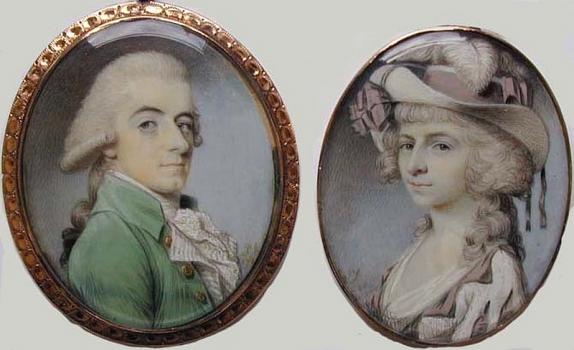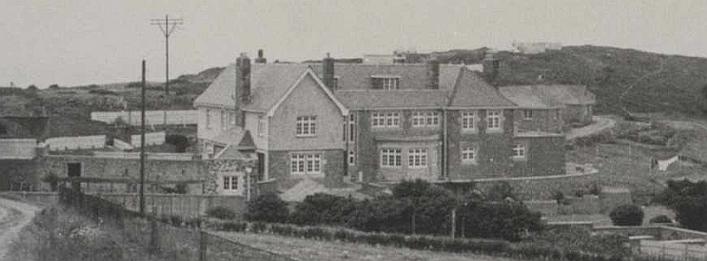The Mystery of the Ostrich-feather Hat
9th March 2015
Judy and Brian Harden of Gloucestershire, specialists in portrait miniatures, approached the Library for advice as to the identity of the sitters for a pair of miniatures by the Jersey artist Philip Jean, bearing the date of 1785. While researching these we noticed some striking similarities between them and other local miniatures we were familiar with.



